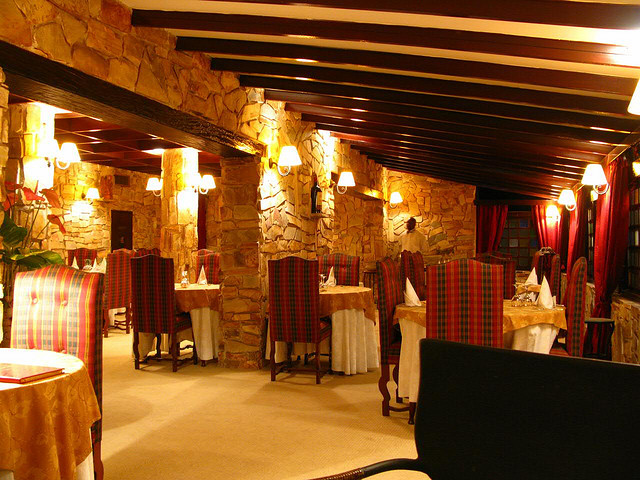Zach Geballe is a server and bartender at Dahlia Lounge
When you wait tables for a living, you learn how to spot certain kinds of guests and anticipate their needs. You have a list of gluten-free entrees ready from the moment they sit down,separate their checks before they ask, and put a candle in their birthday dessert without themeven asking.
There are some guests that perplex me, though, because their experience is so hard to improve: the nervous diners. Now, I’m not talking about an important business meeting or a really exciting first date, both perfectly good reasons for nerves. I’m talking about people for whom the act of dining in a quality restaurant is apparently a cause not for celebration, but anxiety.
Of course that there are some aspects of the dining ritual that can be challenging. From answering the very basic question of “what do I want to eat” to deciphering a menu that appears to be more interested in presenting a random assemblage of obscure food terms than, you know, describing what a dish really is, there are certainly stressors. That said, some guests appear almost miserable while sitting down to what is ostensibly a fine meal, and that’s a shame. Allow me to offer some advice.
Have a drink. An aperitif or a glass of sparkling wine will help calm those nerves, prepare your palate for what’s to come, and can set the tone for a pleasurable dining experience.
Don’t rush yourself. Sure, sometimes there’s a show to see, or a babysitter to get home to, but generally Americans dine way too quickly. If you’re spending upwards of $50 per person, why not enjoy that experience. Yes, some restaurants try very hard to move guests through quickly, but as long as you’re not just sitting there staring at half-full water glasses you’re fine.
Ask questions. A menu should not feel like a pop quiz. It’s absolutely fine to admit that you don’t know what certain ingredients or techniques are. Given that to read a current menu in some restaurants you’d need to be fluent in at least three or four languages and possibly be an amateur biologist, don’t feel bad that you don’t know what mizuna, nuoc cham, or a gastrique are. Asking questions is most certainly acceptable.
Trust your server. We do this for a living, so make use of us. I know my menu inside and out, and any good server would say the same. We know what’s good, what’s great, and what can’t be missed. More than that, we really want you to enjoy your experience, not just for tip-related reasons, but because there’s something very satisfying about providing quality service.
Think about relinquishing responsibility. Some of my happiest guests are the ones that let me order for them. As mentioned above, I know my menu, and I delight in surprising and thrilling my guests with unexpected dishes.
Be proactive. If you’ve got dietary issues or preferences, let me know. We can always accommodate you, but the more notice we have the easier that is. Similarly, if you have budget concerns, those are valid to convey to a server as well, especially when it comes to wine. Words
like “affordable” and “accessible” are good ways to clue your server in that you’re not looking to spend a fortune on a bottle.
Most of all, remember that what you’re doing is supposed to be fun. You’ve got minimal responsibilities, a lot of freedom, and a whole staff there to ensure that you enjoy yourself. So kick back and let us do what we do best.







